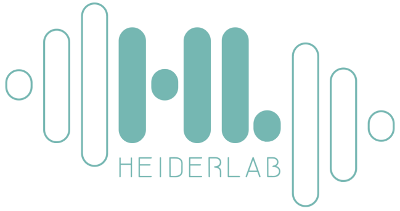CORona Drug InTEractions database
Computational prediction of the molecular mechanism of statin group of drugs against SARS-CoV-2 pathogenesis.
Ghosh, DipanjanGhosh Dastidar, DebabrataRoy, KamaleshGhosh, ArnabMukhopadhyay, DebanjanSikdar, NilabjaBiswas, Nidhan K.Chakrabarti, GopalDas, Amlan
Abstract
Recently published clinical data from COVID-19 patients indicated that statin therapy is associated with a better clinical outcome and a significant reduction in the risk of mortality. In this study by computational analysis, we have aimed to predict the possible mechanism of the statin group of drugs by which they can inhibit SARS-CoV-2 pathogenesis. Blind docking of the critical structural and functional proteins of SARS-CoV-2 like RNA-dependent RNA polymerase, M-protease of 3-CL-Pro, Helicase, and the Spike proteins ( wild type and mutants from different VOCs) were performed using the Schrodinger docking tool. We observed that fluvastatin and pitavastatin showed fair, binding affinities to RNA polymerase and 3-CL-Pro, whereas fluvastatin showed the strongest binding affinity to the helicase. Fluvastatin also showed the highest affinity for the SpikeDelta and a fair docking score for other spike variants. Additionally, molecular dynamics simulation confirmed the formation of a stable drug-protein complex between Fluvastatin and target proteins. Thus our study shows that of all the statins, fluvastatin can bind to multiple target proteins of SARS-CoV-2, including the spike-mutant proteins. This property might contribute to the potent antiviral efficacy of this drug.
Source: PMC
Related molecules
Related interactions
| Target | Drug | Type | Result |
|---|---|---|---|
| RNA dependent RNA polymerase | Pitavastatin | ||
| 3C-like protease | Pitavastatin | ||
| Papain-like proteinases 1/2 | Fluvastatin | ||
| Papain-like proteinases 1/2 | Fluvastatin |
| Target | Target affiliation | Drug | Type | Result |
|---|---|---|---|---|
| Target | Target affiliation | Drug | Type | Result |
| Name | Synonyms | Genes | Origin |
|---|---|---|---|
| Name | Synonyms | Genes | Origin |
| Name | Synonyms | PubChem | DrugBank | RCSB PDB | ATC |
|---|---|---|---|---|---|
| Name | Synonyms | PubChem | DrugBank | RCSB PDB | ATC |
| Title | Authors | DOI | Source | Article type | Date |
|---|---|---|---|---|---|
| Title | Authors | DOI | Source | Article type | Date |
| Title | Status | Phases | Start Date | Prim. Comp. Date | Comp. Date | First Post. Date |
|---|---|---|---|---|---|---|
| Title | Status | Phases | Start Date | Prim. Comp. Date | Comp. Date | First Post. Date |
CORDITE (CORona Drug InTEractions database) collects and aggregates data from PubMed, MedRxiv, BioRxiv, ChemRxiv and PMC for SARS-CoV-2. Its main focus is set on drug interactions either addressing viral proteins or human proteins that could be used to treat COVID. It collects and provides up-to-date information on computational predictions, in vitro, as well as in vivo study data.
The information provided is for research only and we cannot guarantee the correctness of the data.
Please contact dominik.heider@uni-muenster.de for further information.
Programmable access
There is an open API for access programmatically to the database. The API will print a JSON output:
- Interactions
https://cordite-api.uni-muenster.de/api.php?action=list&table=interaction
- Targets
https://cordite-api.uni-muenster.de/api.php?action=list&table=target
- Drugs
https://cordite-api.uni-muenster.de/api.php?action=list&table=drug
- Publications
https://cordite-api.uni-muenster.de/api.php?action=list&table=publication
- Clinical trials
https://cordite-api.uni-muenster.de/api.php?action=list&table=clinical_trial

